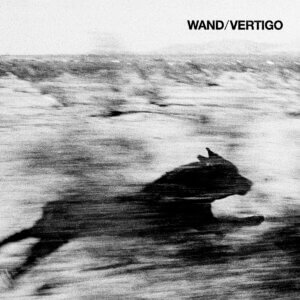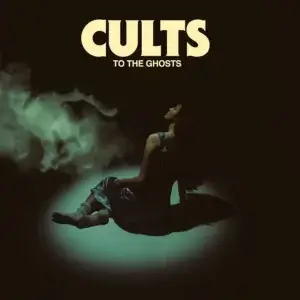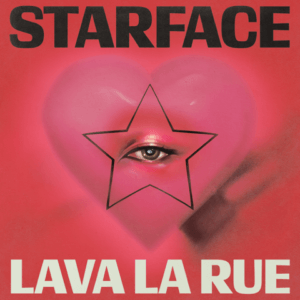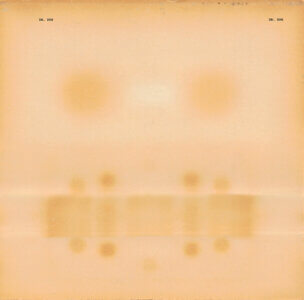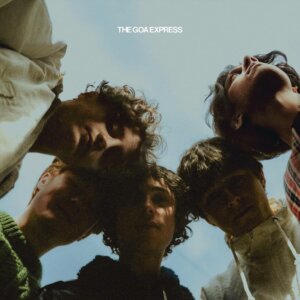Heady Times For The Goa Express
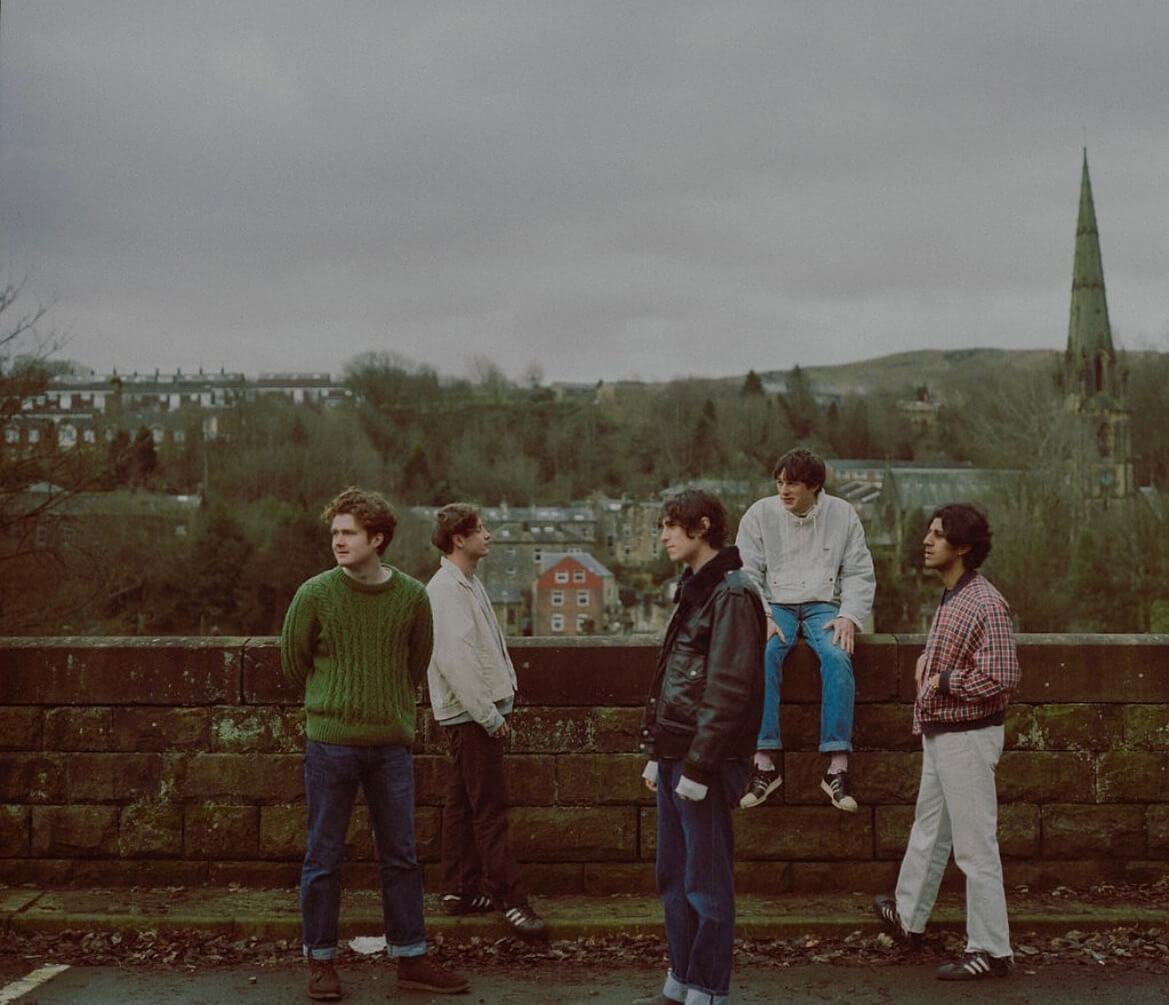
When the five members of The Goa Express were teenagers, growing up in the North Western of England, they decided to put their time together to good use. Made-up of brothers James Douglas Clarke and keyboardist Joe, with friends Joey Stein (Lead Guitar), Naham Muzaffar (Bass) and Sam Launder (Drums), The Goa Express draws on an array of British indie groups – sometimes heralding the Gallagher’s vocal tones, other times the glimmering guitar tones of Stone Roses or Pulp echo in their arrangements – to soundtrack their coming-of-age self-titled debut record. In the lead-up to recording their energetic record, they honed their craft on the road playing over a hundred gigs in 2022. The vibrancy of experiencing your favorite band in a live setting is effectively captured across these infectious ten tracks.
Vocalist and guitarist James Douglas Clarke spoke to Northern Transmissions about The Goa Express’s origins, growing up in Burnley with Blackberry phones, extensive touring and the making of the vibrant self-titled debut album.
Northern Transmissions: Hey James, how are you doing? The Goa Express’s debut album is out this Friday, how are you feeling about that? It must be exciting to know that people are going to be able to listen to it, or does that make you feel nervous knowing that it’s taking on a new life outside of the band?
James Douglas Clarke: I’m good, I’ve been relaxing today! I’m super excited about the album coming out. We released another single the other day which has been going down well. I’ve been shipping off records to people and getting loads of stuff sorted, which feels weird. But great!
We’ve got some shows coming up, which will be great. There’s one on Friday in Hebden Bridge and then we have shows in Liverpool and Birmingham. And then I’m going to Canada for two weeks for Christmas, which will be nice! We have some more shows at the end of December, so, yeah, I think Christmas is going to be a really nice period for us to have the record out, and everyone can listen to it over the festive period.
But, we’re really excited. We tend to not overt-think these moments and we’re just super proud of it because we’ve worked so hard to get to this point. Now, I guess, we’re going to metaphorically put our feet up and relax!
NT: Tell me about how The Goa Express began. It’s you, your brother and your friends. What prompted you to start writing and playing music together?
JDC: We were kids and had loads of nervous and expendable energy! We used to be super hyper and we were all into music and sort of needed something to put our hands to. That started from a super young age. I moved school when I was in year eight because I was a little naughty in year seven at my old school, and met everybody in the new school. Then I’d bump into people in the corridor and see each other around the school.
A connection happened between us all straight away. As I said, we just needed something to do collectively. It made sense to play music. I played football and so did a few of the other boys but some of them didn’t. So it was just an excuse to hang about really, but to also fill the time with something useful and fun.
We went through school, college and uni together and now we’re all getting a bit old and we’re still doing it! There was a funny review the other day that was like, ‘It seems like they’ve got to this point just doing music on the side’ and it’s sort of true. We’re getting on with our lives, as we always have done, and we just seem to be doing music, as well. That’s quite cool, I think.
NT: And you all grew up in Burnley, right? I know some of the members of the band moved to Manchester.
JDC: Yeah, yeah, we all, we all migrated to Manchester for uni. We’ve all had big stints there. Naham lived there for six years, I lived there for five years. Joey still lives there now. But some of us sort of like, yeah, came back to the hills and the countryside a little bit more, just for a little bit more freedom because the rent is so expensive in the city these days. We play so many shows that sometimes it doesn’t necessarily make much sense to be paying rent all the time for a place that you’re hardly ever staying in.
NT: What’s the music scene like in Burnley? Was there much of a scene there when you were growing up?
JDC: No, there wasn’t a music scene at all. None of our friends were in bands. Our parents, you know,
they’re all into music but never had connections within the industry or bands.
What was it like? Burnley’s a rundown, working class old mill town, just like a lot of places in the North. It’s got a really nice spirit and drive to it; people are super close. But, and not in a bad way, but opportunities are slightly limited. At the same time, I guess they’re not entirely because you’re also only 30 minutes away from Manchester and being from Todmorden, you’re in the middle of Leeds and Manchester and that’s also really beautiful. I think Burnley is just one of those places where you’ve got to make your own luck and forge your own way because you’re sort of left to yourself to do so.
NT: It’s interesting to think how a place, and the place where you grew up, can inform or influence the art you create, and how you view life, in general. Across The Goa Express’s debut, there are a load of various reference points from The Strokes, The Cribs, Bloc Party, Pulp, Supergrass and you worked with Tom Manning and Ocean Colour Scene’s Damon Minchella.
JDC: I don’t know, really. We were sort of the first generation who had access to everything through having mobile phones. I got my first phone when I was in year seven so I was like 14 or so, that was generally what happened. We were the first kids for that to happen to. Kids these days get phones much earlier than that, but when I was like 14 or 15 we were only starting to get Blackberries! As we got into college, YouTube and the internet were in full flow so we could listen to everything and anything we wanted. We used to spend days and days and hours and hours just scrolling through the weirdest stuff ever.
How did you find the process of developing The Goa Express sound? Obviously, with a debut it’s so important to have a sort of familiarity in your sound and incorporate your influences whilst also pushing boundaries to make your own imprint within a genre. How was that experience for you?
JDC: We didn’t really pay too much attention to what we sounded like then because we sounded pretty terrible at first because none of us really played an instrument. It was more about having something to do. Over time, I reckon, without having a conversation surrounding it, we just sort of found our own styles which led to what we sound like now. There’s a simplicity to it. I mean I think that’s the whole point and yeah I guess like people say it sounds like this or it sounds like that. That’s sort of the point really, because I don’t know why or how it came to sound like this. I guess it’s sort of a very British sound, to be fair, I guess it sounds unmistakably British.
NT: Course. How did you find the process of working alongside Tom Manning and Damon Minchella in the studio?
JDC: Yeah, it was cool. We first did some stuff with them after we played at Glastonbury. We were on a whole festival comedown because we’d been touring for the whole Summer. It was the perfect place to go because it was a super rural and really laid back place; just fields upon fields upon fields! That also meant that we were able to focus really well. By the time we went there to make the record, we completely knew what we wanted to do and how we were going to do it and what the process would be. So yeah, it was a really strong Spring! We did it at the start of the year and it was done within, I think, three weeks.
NT: You mentioned there that you’d toured a lot leading up to the recording sessions. Did you find that having that time to play with songs on stage helped take certain arrangements to different places?
JDC: Not so much. The shows are just about having fun. I don’t think we really apply a sort of analytical eye to the performance element, as such.We go and have a nice time and make sure it’s fun for the audience and make sure it’s fun for us. Then I think about that stuff post show, really, or when we have time to think about it. But yeah, we knew what songs sounded good live and therefore would definitely have a place on the album. So, I guess that was the link we could draw between the actual performance on the album.
NT: I read that when you’re in the studio, lyrics tend to fall out of you and you follow the melodic structure over focusing too much on what’s being said. I think you described it as them “existing in a transitional moment.” Is there much work done after those initial moments of tweaking sentence structures or picking different words?
JDC: Literally, no! I think I’ve revisited a lyric once in six years. Naturally, the more you sing it, the more you follow a higher intonation or follow a different melody or something. But yeah, literally every time the first lines that are sung are the ones that stick and they don’t get revisited. I never write with a certain theme in mind. It’s just I sit down with my guitar, and I just make stuff up and then and then yes, it’s pretty seamless from that point on. It’s pretty easy.
NT: There’s a line in “Small Talk” where you sing, “Put my earphones in and close my eyes.” Who are some of the bands or artists that you like to listen to when you need to switch off from everything?
JDC: God, at the moment, a lot of jazz, mostly 1960s jazz, like Thelonius Monk. When we have long journeys, it’s great to listen to because that’s easy to nod off to, as well. I like Kurt Vile and Alex G and a lot of 60s and 70s songwriters, as well. Although, I just write music all the time. I’m more often writing music than I am listening to music.
NT: What are you excited for in 2024 for The Goa Express?
JDC: Always writing other tunes! We’ll show that be another record. We have probably another single to release in a few months after th ealbum. And then just talk and play shows and just take things as they come like we always do and have a good time and hopefully meet some people and see what happens!
Order The Goa Express by The Goa Express HERE HERE
Latest Reviews
Tracks
Advertisement
Looking for something new to listen to?
Sign up to our all-new newsletter for top-notch reviews, news, videos and playlists.
